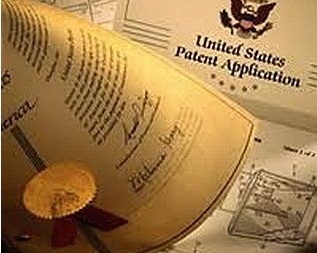Ex-Google Developer Removed Java Code From Android

A former Google software architect has testified he removed part of the Java code from Android after Oracle’s lawsuit
The Oracle versus Google lawsuit in federal court continues to probe Google’s alleged illegal use of parts of the Java code base in Android.
But the case has taken a couple of curious turns.
Code Removed
Turn No. 1: Former Google software architect Dan Bornstein, who helped create Android, testified 25 April that he took some components of the Sun-developed Java code out of the configuration shortly after Oracle filed its lawsuit in 2010 – only months after acquiring Sun in January of that year.
Turn No. 2: The presiding judge, William Alsup, will need to decide whether or not it is proper that his court reinstitute a now-invalid Java patent.
This one could play a key role in whether Java application programming interfaces (APIs) are declared part of the open-source Java package or separate and sacrosanct from free use.
API Issue
Oracle claims that Google illegally used several Java APIs that Oracle considers its own intellectual property to help build the Android operating system. Google contends that the APIs it used cannot be copyrighted because doing so would be similar to copyrighting a technique used to perform a task. Legally, techniques are not considered intellectual property.
 Oracle has claimed it deserves about $1 billion (£620m) in damages as a result of Google’s alleged copyright infringement. The Redwood Shores, California-based corporation has said it may seek an injunction blocking the sale of Android-based devices to boot.
Oracle has claimed it deserves about $1 billion (£620m) in damages as a result of Google’s alleged copyright infringement. The Redwood Shores, California-based corporation has said it may seek an injunction blocking the sale of Android-based devices to boot.
The components Bornstein removed from Google’s 2010 edition of Android had been added to it by a third-party contractor, Noser Engineering of Switzerland, Bornstein told the court. Noser had been directed by the Google team about what parts of Java it could and could not use when contributing to the development, Bornstein said.
Living Project
Asked why he took the code parts out, Bornstein explained that Android, like most ongoing software projects, is “a living project” that constantly is being updated and improved.
The former Google architect, who now works for a startup called The Obvious Corp, said at one point he was involved in an internal Google memo in which it was suggested that for Android coders and architects with Java experience, it was permissible to use what code they already knew but not allowable to simply copy code from other sources.
Most successful software developers always have a certain amount of “stuff in their heads” from previous projects, Bornstein said.
Patent Reissuance?
On the patent issue, Alsup heard statements from both Google and Oracle over the possible reissuance of one US patent, No. 5,966,702, which protects a Java API.
During pretrial due diligence in 2011, the US Patent Office ruled that it was invalid and disallowed for the trial after Google requested that the federal authority revisit it.
Later, however, Oracle appealed that decision, and the patent office subsequently reversed its ruling. Alsup now has to make a final decision to allow it back into evidence or strike it from the case completely.
Sun Microsystems co-founder and former CEO and Chairman Scott McNealy is scheduled to testify on 26 April.
Google contends that Oracle was planning on getting into the smartphone business itself, would have been a competitor to Android and simply wants to horn in on the profits of the popular open-source mobile device system. Ellison testified 17 April that Oracle did at one time consider acquiring Research In Motion, maker of the BlackBerry smartphone, and Palm Computing.
Android, released in 2008 by Google to partners such as Samsung, HTC and other manufacturers for smartphones and tablet PCs, now runs more than 300 million mobile devices.
Do you know Google’s secrets? To find out, take our quiz.